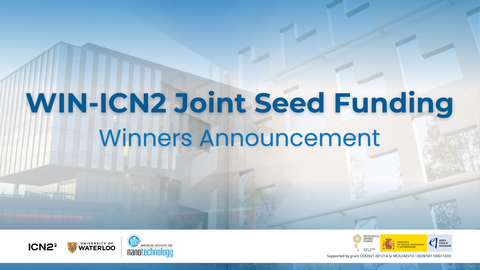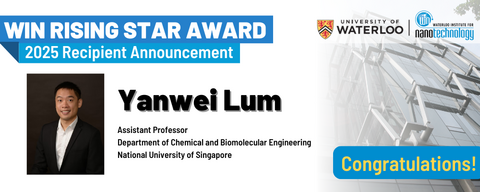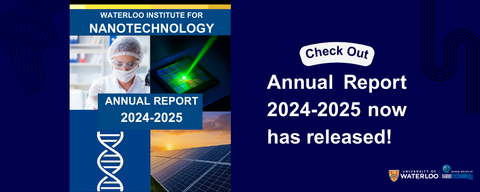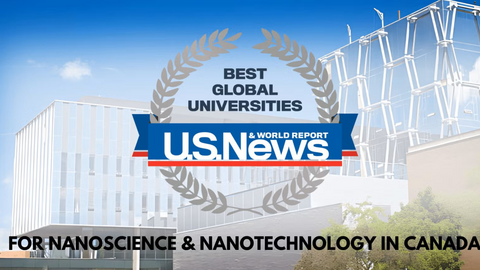The Waterloo Institute for Nanotechnology (WIN) is a global leader in discovering and developing smart and functional materials, connected devices, next generation energy systems, and therapeutics and theranostics. These discoveries by our scientists and engineers are fundamentally changing our world and helping solve some of humanity's most pressing issues. Our 285, 000 square foot, state-of-the-art facility meets the highest scientific standards for the control of vibration, electromagnetic radiation, temperature, and humidity, making it a global centre of excellence for nanotechnology and its applications.
Why is nanotechnology important? It is about creating new materials and improving ways of manufacturing products. To be more efficient, better, stronger and cheaper. Also improving the economy, environment and society. To achieve societal impact and a sustainable future, WIN has now mapped its thematic areas with the United Nations Sustainable Development Goals.
Events
UW - TU Joint Workshop on Materials and Devices
UW–Tohoku University Joint Workshop on Materials and Devices will be held online on March 4, 2026, to advance collaborative research and support the emerging UW–TU Seed Funding Program.
CENIDE & WIN Seminar Series on 2D-MATURE : Assistant Professor Teng Cui
The Waterloo Institute for Nanotechnology (WIN) and the Center for Nanointegration Duisberg-Essen (CENIDE) are pleased to present assistant professor Teng Cui for a joint 2D-MATURE seminar.
News
NRC Quantum Internetworking (QUIN) Challenge Program
Building on the momentum of the NRC–Waterloo Quantum and Nanotechnologies Workshop, the NRC has opened a new call under its Quantum Internetworking (QUIN) Challenge Program. WIN researchers are invited to submit EOIs for collaborative projects focused on advancing networked quantum devices in Canada.
World's First printed force sensor on compostable Nano Paper
At Nano Tech 2026 in Tokyo, Tangho Green Canada, Yamagata University, and the University of Waterloo will present the first public demonstration of a dynamic printed force sensor on compostable NanoPaper. The interactive “electronic skin” demonstrates real-time touch sensing, marking the first commercial availability of Tangho NanoPaper as a sustainable substrate for printed electronics.
WIN-ICN2 Joint Seed Funding Programme Expanded with Two Additional Projects
The WIN–ICN2 Joint Seed Funding Programme has been expanded to include two additional projects, enabled by increased funding from both institutions in recognition of the high quality of proposals received. The newly funded projects—MYHEAL, focused on 3D-printed antimicrobial bandages for chronic wounds, and SHINE, which develops sustainable organic electronic transistors—were the next highest-ranked submissions. This expansion strengthens collaboration between WIN and ICN2 and supports the programme’s goal of building foundations for future international funding, including Horizon Europe.









